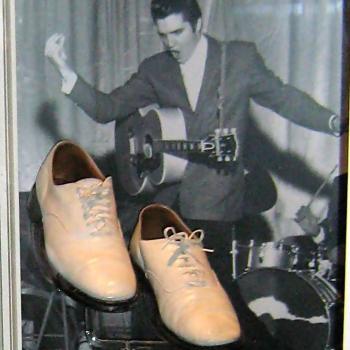reports:
Terrifying teens by making them lie in coffins, forcing them to spend a night on a frigid street or a bare prison cell— these harsh measures are used in reality shows in an attempt to put delinquents back on the straight and narrow. But the strategies may make for better TV than treatment. …
It’s not like there’s a shortage of data or any scientific controversy over Scared Straight’s actual results. In fact, a Cochrane review — the gold standard for evidence-based medicine — concluded that kids sent to Scared Straight were 68-71% more likely to commit crimes than those randomized to receive no intervention at all.
Teen Trouble’s approach is similarly problematic. Most of the adolescents who appear on the show have drug problems and some have mental illnesses like depression, but are not given treatment proven to work for these conditions. Instead, Teen Trouble relies on inducing fear through confrontation, supposedly to show teens the potential consequences of their actions: disfigurement, disability, homelessness, death.
In one episode, for example, a girl is forced to lie down in a coffin and touch dead bodies; in another, a boy is put in casts and a wheelchair. A third episode includes a “make over” where a teen girl’s face appears covered with scabs and sores; another sees a young woman spend a winter night on the streets with the homeless. Afterward, many of the teens are sent to tough wilderness or “emotional growth” boarding schools.
“Time and time again, research finds these approaches to be innocuous at best and traumatizing at worst,” says John Norcross, professor of psychology at the University of Scranton who studies the effectiveness of psychological treatments.
A 2007 review [PDF] of the literature on tough-love or confrontational strategies to deal with drug problems concluded “Four decades of research have failed to yield a single clinical trial showing efficacy of confrontational counseling, whereas a number have documented harmful effects, particularly for more vulnerable populations.” Teens are one such susceptible group.
Studies on virtually all of the tactics seen on Beyond Scared Straight — from getting in people’s faces and screaming at them, to forcing them to view videos of themselves filmed when they were intoxicated— showed that these tactics have either no effects or negative ones on teens’ behavior. One study revealed that the more a counselor confronts an alcoholic, the more he or she later drinks. …
In one episode [of Teen Trouble], for instance, he ships off a 16-year-old girl with a drinking problem to a program called Axios Youth Community. Several weeks after the show was taped, the program was shuttered following allegations that an employee had sexually molested a 13-year-old girl. In another episode, a 16-year-old girl who was injecting heroin was sent to a “therapeutic boarding school,” Copper Canyon Academy, which claims to help troubled girls but is not a specialized center for treating teens with the most serious addictions.
The mother of a former student at Copper Canyon recently told the New York Post that while she’d expected a “top notch boarding school,” instead the program turned out to be a “Nazi concentration camp.” Former students interviewed by the Post describe confrontational and humiliating tactics, such as being made to re-enact traumatic experiences, including rape, in front of their classmates.











